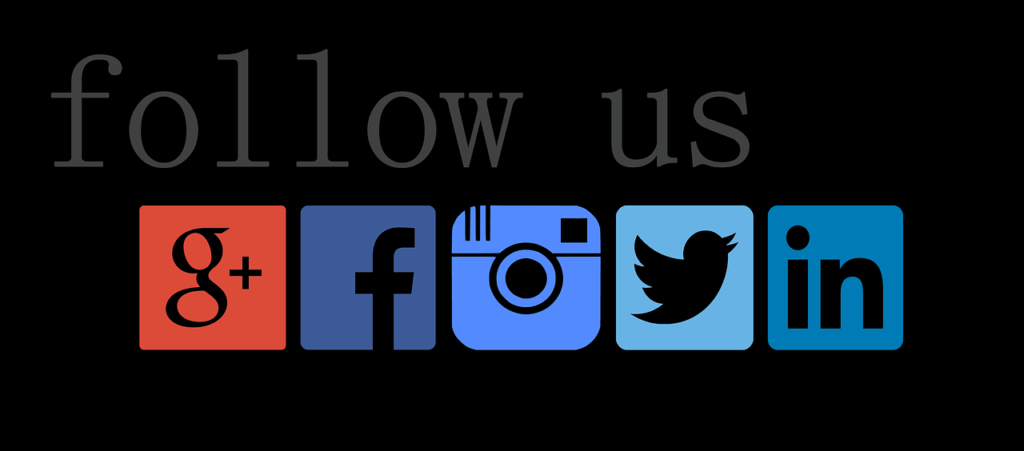
📱 In today’s digital age, social media has become an integral part of our lives. We use it to connect with friends, stay updated on current events, and even as a source of entertainment. However, just like any other aspect of life, moderation is key. Unhealthy social media usage can lead to a range of issues, from addiction to the deterioration of real-world relationships. In this article, we will explore the signs of unhealthy social media usage and discuss what constitutes a healthy relationship with social media.
Signs of Social Media Addiction:
- Excessive Time Spent on Social Media: Spending an excessive amount of time scrolling through social media platforms is a clear sign of addiction. This behavior often leads to neglecting important responsibilities and activities. ⏰
- Isolation from Friends and Family: People addicted to social media may distance themselves from friends and family, preferring to spend more time online. This isolation can strain personal relationships and make it challenging to be fully present in real-world interactions. 🚶♂️🚶♀️
- Skipping Social Events: Those addicted to social media may frequently opt out of social gatherings and events to stay connected online, missing out on real-life experiences. 📵
- Loss of Interest in Hobbies: Addiction to social media can lead to a reduced interest in once-enjoyed hobbies or even abandonment of these activities altogether. 🎨
- Reduced Physical Activity: Social media addiction often results in decreased physical activity and a decline in other leisure pursuits due to excessive screen time. 🏋️♂️
- Poor Academic or Work Performance: When social media takes up a significant portion of one’s time and energy, it can lead to neglecting academic or work-related responsibilities, resulting in declining performance. 📚👩💼
- Attachment to Smartphone: People with social media addiction often develop a deep emotional connection to their smartphones, using them as the primary means to access and engage with social media. 📱❤️
- Anxiety When Separated from the Phone: Experiencing anxiety or distress when separated from one’s smartphone, especially when it’s temporarily taken away, is a strong indicator of social media addiction. 😟
- Emotional Withdrawal: Addiction to social media can lead to emotional withdrawal from real-world interactions, as the individual becomes overly engrossed in online activities. 😞
Recognizing these signs is crucial for understanding when social media usage has taken a harmful turn. People often dismiss these signs, so it’s essential to listen to the feedback from friends and family who may notice the changes in your behavior. 🙉
Unhealthy Social Media Behaviors:
Beyond addiction, various unhealthy behaviors associated with social media use can negatively impact one’s life:
- Comparison: Using social media as a constant tool for comparing your life to others can be distressing. It often leads to feelings of inadequacy and envy, particularly when viewing seemingly idealized versions of others’ lives. 🤔👀
- Self-Esteem and Body Image Issues: The prevalence of heavily edited and retouched photos on social media can distort one’s self-image, leading to lower self-esteem and body image dissatisfaction, especially among teenagers and young adults. 🤳🤦♀️
- Preoccupation with Likes: Becoming overly preoccupied with likes and seeking validation through social media can negatively affect your self-worth, as self-esteem becomes dependent on external feedback. ❤️👍
- Fear of Missing Out (FOMO): Constantly comparing your experiences to those of others can lead to FOMO, causing distress when you feel like you’re missing out on exciting events or experiences. 😭🎉
- Unhealthy Coping Mechanism: Using social media as a way to seek validation and cope with negative emotions can lead to a dependency on it for emotional support. 🤷♂️💔
- Interference with Social Skills: Overusing social media to the point where it interferes with your social skills and real-life interactions can hinder your ability to connect with others. 🤳🙅♂️
- Oversharing and Privacy Concerns: Oversharing personal information and minimizing privacy can negatively affect relationships and compromise your online security. 🙈🔐
- False Sense of Closeness: Believing you have deep, meaningful connections with online friends, when the reality may not align, can lead to misunderstandings and disappointments. 🤗💻
- Participation in Radical Communities: Involvement in radical or echo-chamber communities that encourage extremist views can be detrimental to critical thinking and overall well-being. 🗣️🚫
- Bullying and Cyberbullying: Experiencing bullying or harassment online can lead to feelings of shame, depression, and anxiety. 😔👥
- Compulsive Checking: Developing compulsive behaviours like constantly checking on people or obsessing over minor social media metrics can indicate an unhealthy relationship with social media. 🔄📈
Understanding these harmful behaviors and recognising them in your own social media usage can be the first step in developing a healthier relationship with these platforms. 🛠️
Characteristics of Healthy Social Media Usage:
🌟 Now that we’ve explored the signs of addiction and unhealthy behaviors associated with social media usage, let’s delve into what constitutes a healthy relationship with these platforms.
- Balanced Time Management: Healthy social media users can take breaks from their screens with minimal to no distress. They don’t allow their online presence to consume all their free time. ⏸️
- Present in Real-Life Interactions: They never let their screens distract them when they’re interacting with others in person, demonstrating their ability to be fully present. 👥
- Balanced Sharing: Healthy users don’t over-share personal information and are mindful of their online privacy. They strike a balance between sharing meaningful moments and maintaining boundaries. 🤐
- Realistic Expectations: They understand that social media often showcases the highlights of others’ lives and maintains a healthy dose of skepticism. They don’t let the polished images and stories distort their perception of reality. 🌈
- Minimal Impact on Self-Esteem: Social media is not their primary source of validation, and they are not significantly affected by likes, comments, or follower counts. They have a strong sense of self-worth that doesn’t rely on virtual validation. 🙌
- Enhancing Real-Life Connections: Healthy social media usage fosters and strengthens real-life connections. It’s a tool for maintaining contact with friends, sharing experiences, and staying informed. 👫
- Learning and Empathy: They use social media as a tool for learning, engaging with diverse communities, and challenging their own beliefs. It’s a means of broadening their perspectives and increasing empathy. 🧠🌍
- Coping Effectively: Healthy social media users have healthy coping mechanisms and don’t rely on the platform to escape from negative emotions. They handle distress in a balanced way. 🌦️
- Quality Sleep: Their social media usage doesn’t interfere with their sleep patterns, and they make a conscious effort to unplug before bedtime. 😴
- A Tool for Expression: They use social media as a creative outlet to share their passions, interests, and artistic expressions. It’s a platform for personal growth and exploration. 🎨📸
- Positive Disconnect: Healthy users can easily dismiss social media if they find it disappointing or uninteresting. They don’t let it negatively affect their mood or self-esteem. 🙃
- Balance in Real Life: They focus on building their real-life world, not letting social media become their entire life. They maintain a balance between online and offline activities. 🌍
Striving for these characteristics in your social media usage can help you maintain a healthier relationship with these platforms. It’s important to remember that achieving this ideal is a gradual process, and finding the right balance takes time and self-awareness. 🕒
Guidelines for Healthy Social Media Usage:
To help ensure that your social media usage remains healthy, consider the following guidelines:
- Take Regular Breaks: Schedule short breaks from social media throughout the day and take longer breaks (days or weeks) to disconnect and recharge. ⏸️
- Limit Notifications: Turn on “Do Not Disturb” mode or aeroplane mode when you need to focus on other tasks. Reduce the urge to constantly check your phone. 📵
- Curate Your Feed: Regularly review and curate your social media feed. Unfollow or mute accounts that don’t positively contribute to your online experience. 📢
- Engage Thoughtfully: Before sharing or responding to posts, take a moment to consider your intentions. Make sure your interactions are meaningful and respectful. 💬
- Real-Life Engagement: Be fully present when you’re interacting with people in real life. Make a conscious effort to put your phone away during these moments. 👥
- Privacy Awareness: Be mindful of your privacy. Avoid oversharing personal information, and stay cautious about the data you share online. 🕵️
- Diverse Perspectives: Seek out diverse and informative content that challenges your views and broadens your understanding of different perspectives. 🔄
- Be Skeptical: Maintain a healthy level of skepticism and critical thinking when consuming content. Be aware of misinformation and fake news. 🧐
- Balanced Validation: Remember that validation should primarily come from within. Don’t overly rely on likes or comments for self-esteem. 🙏
- Sleep Hygiene: Prioritize quality sleep by disconnecting from social media before bedtime. Make sure your screen time doesn’t interfere with your sleep schedule. 😴
- Set Boundaries: Establish clear boundaries for your social media usage and adhere to them. Ensure it doesn’t consume an excessive portion of your day. 📅
- Connect Authentically: Use social media as a platform to express your genuine self and connect with like-minded individuals. Avoid creating a facade or seeking false validation. 🙌
By incorporating these guidelines into your social media usage, you can foster a healthier and more balanced relationship with these platforms. Remember that it’s okay to seek help or take a break if you find yourself struggling with social media addiction or harmful behaviors. Prioritizing your well-being and mental health is essential. 🌞
The path to healthy social media usage is an ongoing journey, and self-awareness is your greatest ally. Strive to find the balance that works for you, making social media a positive and enriching part of your life. 🌼📱💕

2 thoughts on “Addicted to social media? how to get out”
You have mentioned very interesting details!
ps decent website.Raise blog range
I like how well-written and informative your content is. You have actually given us, your readers, brilliant information and not just filled up your blog with flowery texts like many blogs today do. If you visit my website YQ9 about Online Business, I’m sure you can also find something for yourself.